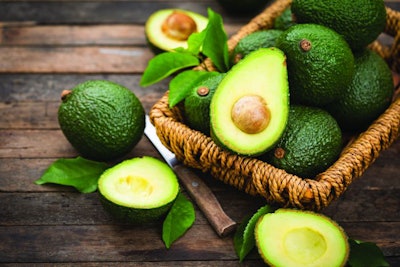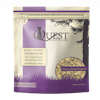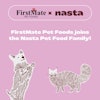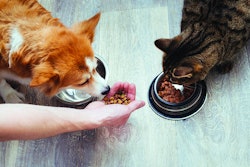
Researchers added to the evidence that avocado has potential as a novel dog food ingredient, contrary to veterinary and popular recommendations against the fruit. Avocados contain a chemical called persin, a natural fungicide, which could be toxic to dogs that eat the fruit. However, in an experiment, persin seemed to be destroyed and inactivated during kibble production, leaving the resulting product safe for dogs. The Journal of Animal Science published the results.
Maria Cattai de Godoy, associate professor at the University of Illinois Urbana-Champaign, led a team of scientists that conducted an experiment to test if avocado-based ingredients truly were dangerous to dogs. Dogs snatching fallen avocados from beneath trees in her Brazilian homeland inspired Cattai de Godoy’s research, she said in a press release.
I want my free, daily news update from Petfood Industry.
Avocados originated in what is now Latin America. For millennia, people from Mexico to Peru have grown avocados and incorporated the fruit into their culture and mythology. Along with commercial avocado orchards, the trees remain a common feature in backyards throughout the region. Pet dogs don’t hesitate to eat a dropped fruit, but the dogs don’t drop dead.
The Illinois research team first analyzed the avocado and products produced from it. They looked for concentrations of persin in various parts of the fruit.
“Persin is structurally similar to a polyunsaturated fatty acid, meaning there are a lot of double bonds,” Cattai de Godoy said in the press release. “They’re not very stable; heat and light can make them break down. Processing is very likely breaking down persin, which is probably why we cannot see it in the meal.
“In fact, the concentration was so small in the avocado meal that it was out of our standard curve linear range, meaning it was below detection level. We observed, however, detectable amounts of persin in the raw fruit, including the peel, pulp, and pit.”
Afterwards, once the ingredient had tested toxin-free, the scientists used the avocado meal in a dog food formulation and fed it to Beagles. Nine dogs participated in all, divided into three groups. Groups ate a kibble made with one of three fiber sources: avocado meal, beet pulp or cellulose. During the two-week feeding trials, none of the dogs showed signs of toxicity from the avocados.
“From what we can tell, it seems to be a safe ingredient. We don't see a signal for persin in avocado meal, and there is not really a robust literature pointing to persin as a true toxin for dogs or cats” she said. “I certainly think there's still work to be done in order to say there are no concerns, especially if we were giving the fresh fruit. But according to our study, I think avocado meal is a safe bet and can be used effectively as a sole source of dietary fiber or in fiber blends.”
Earlier research on avocado in dog and cat foods
Earlier research also published in the Journal of Animal Science, found that avocado meal could be a safe novel dietary fiber source for cats.
“There are three potential avocado ingredients that could be used in pet food: the avocado pulp/puree, avocado oil and avocado meal. Each has unique properties and potential market positioning that must be weighed against the customer value proposition. There is positive name recognition for marketing purposes and potential benefits to dog and cat diets. The only hurdle is whether there are limits to inclusion and/or long-term consumption by our pets — this has yet to be confirmed,” Greg Aldrich, pet food program coordinator at Kansas State University, wrote in his Petfood Industry column.
Avocado appeared in more dog and cat foods’ ingredient lists, according to data from more than 7,000 pet food ingredient panels compiled in 2017, the last date for which data is available. Some form of avocado, such as oil powder or dried, made-up part of the recipes of 42 dry dog foods, or approximately two percent of the total. Twenty-three canned dog foods used some form of avocado. For canned cat foods, 18 products used avocado.

















